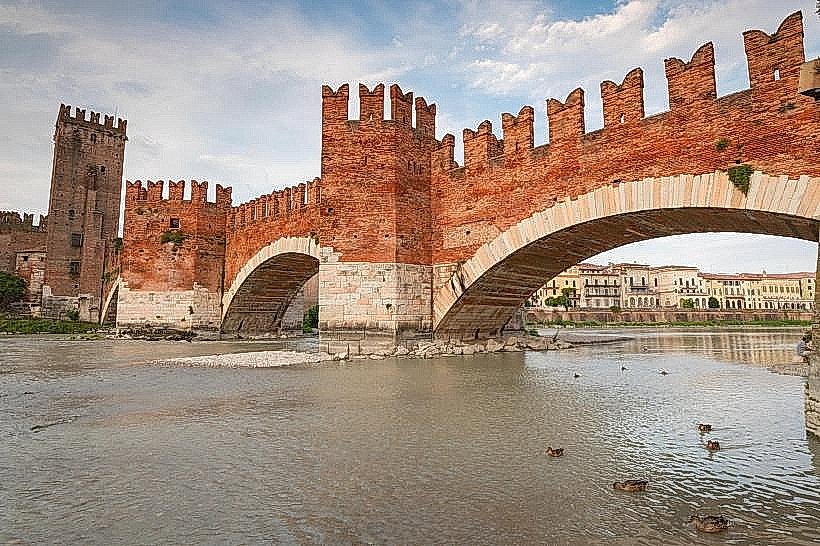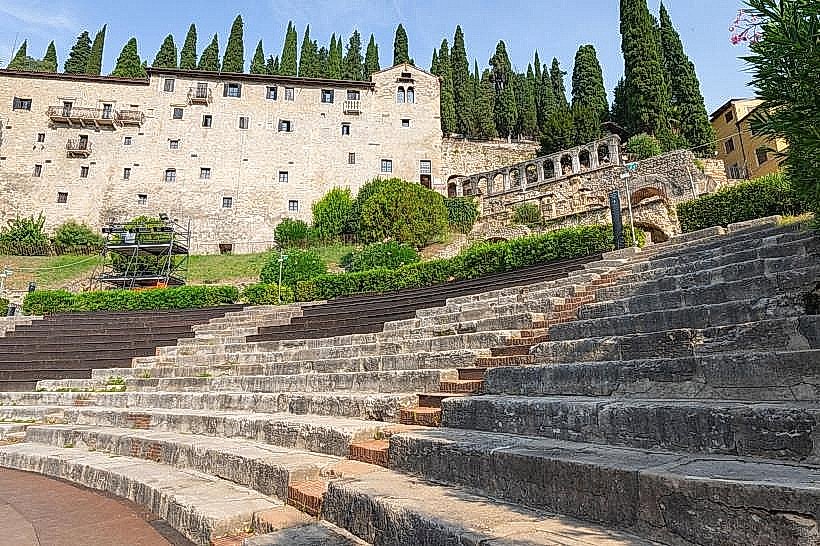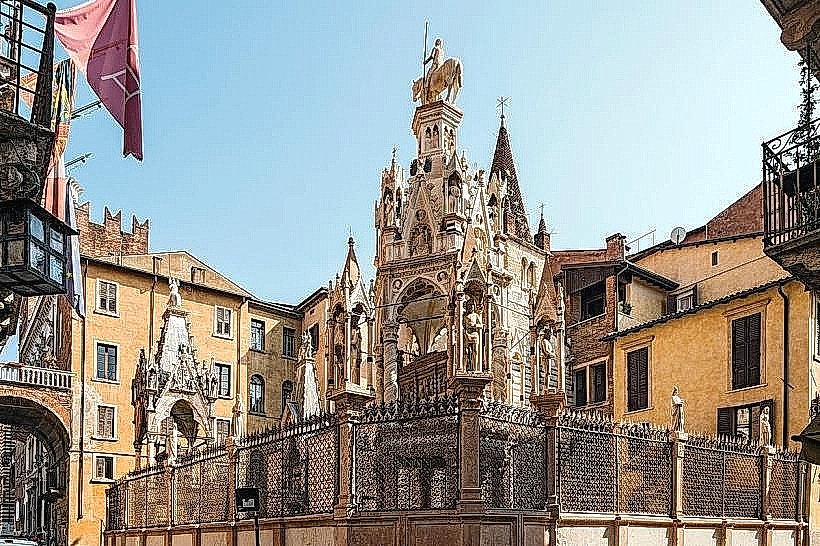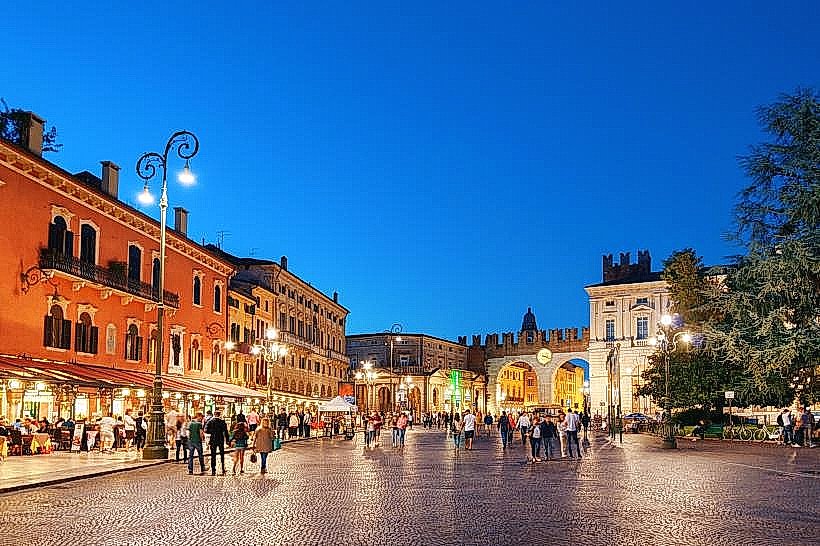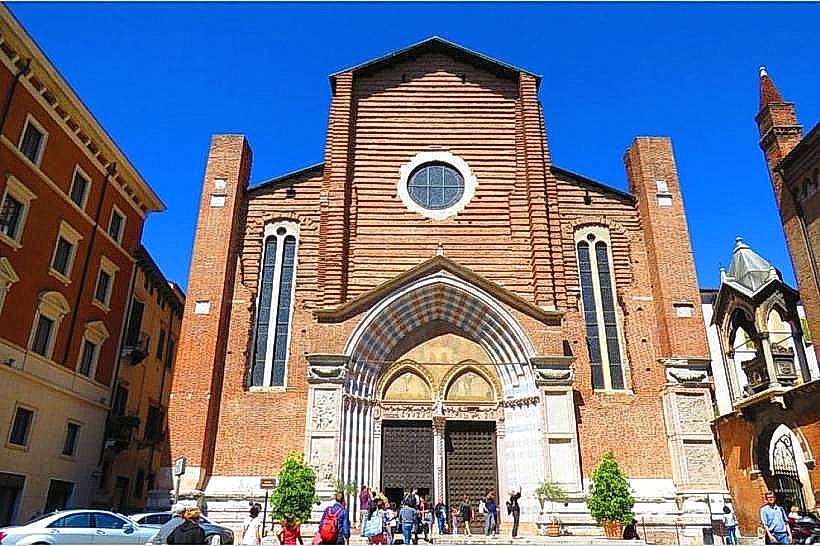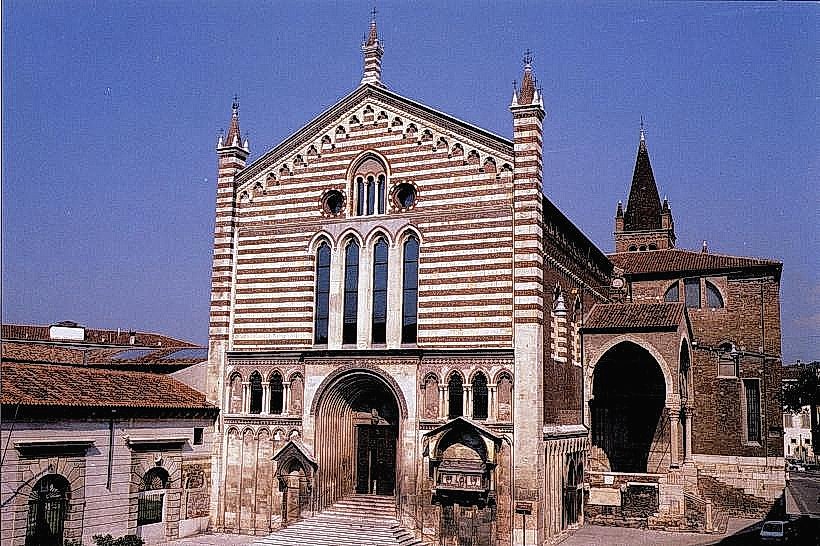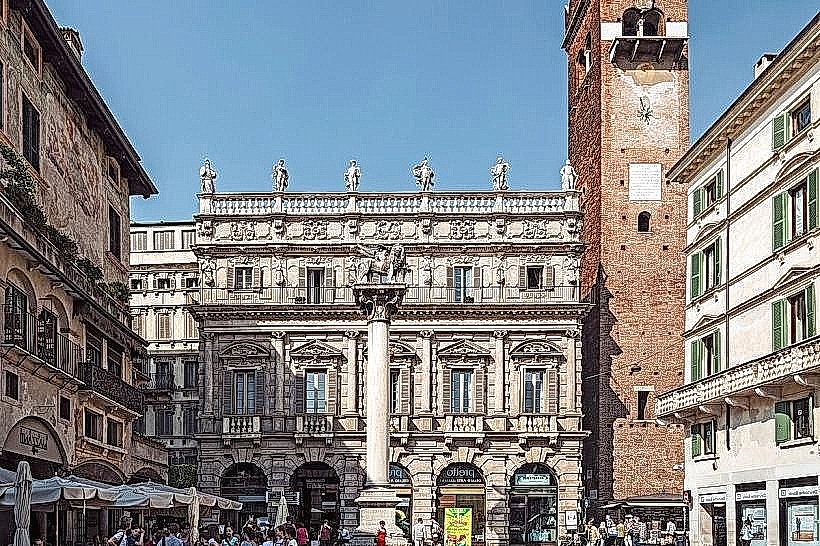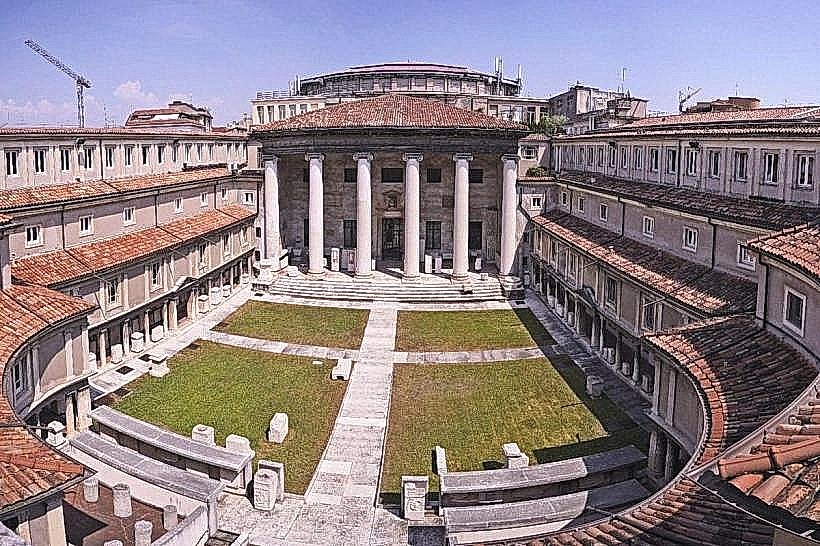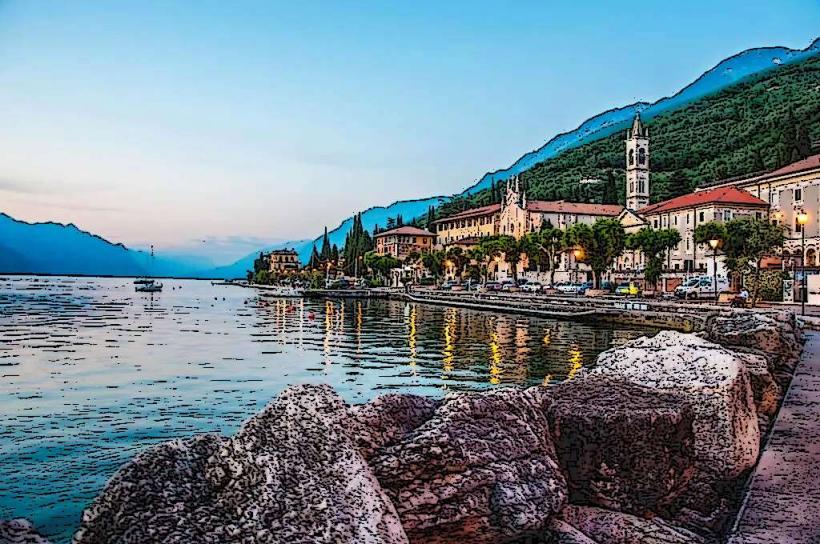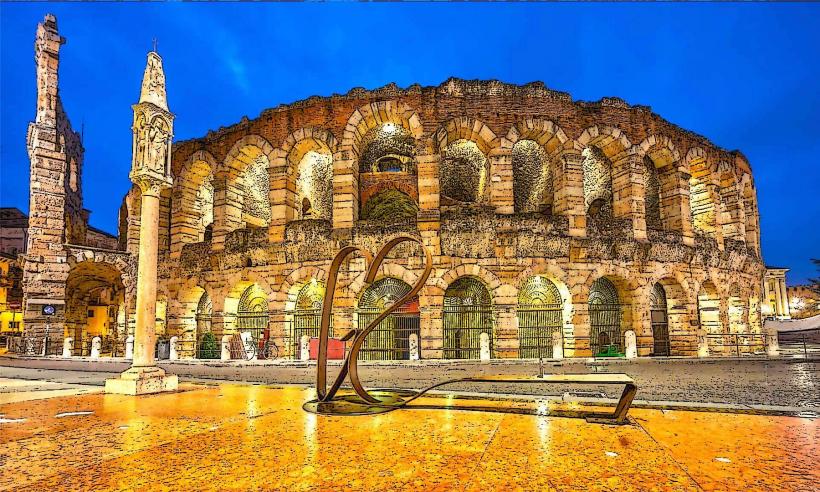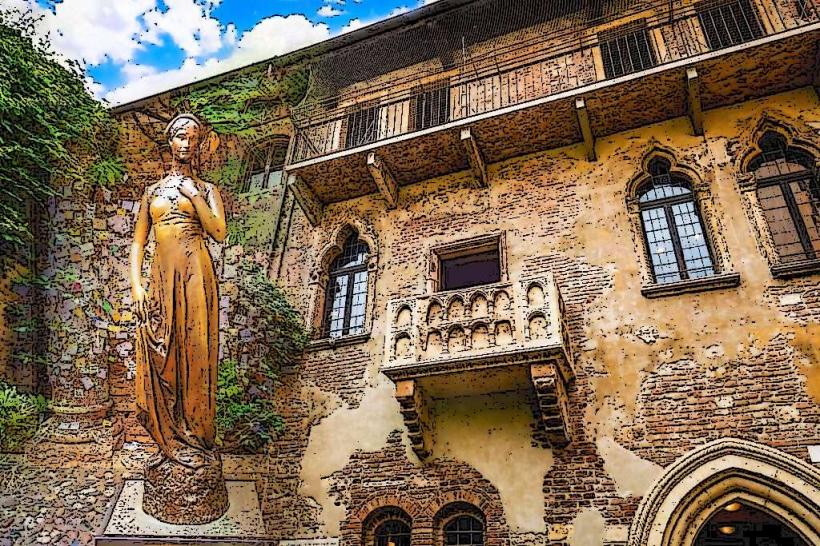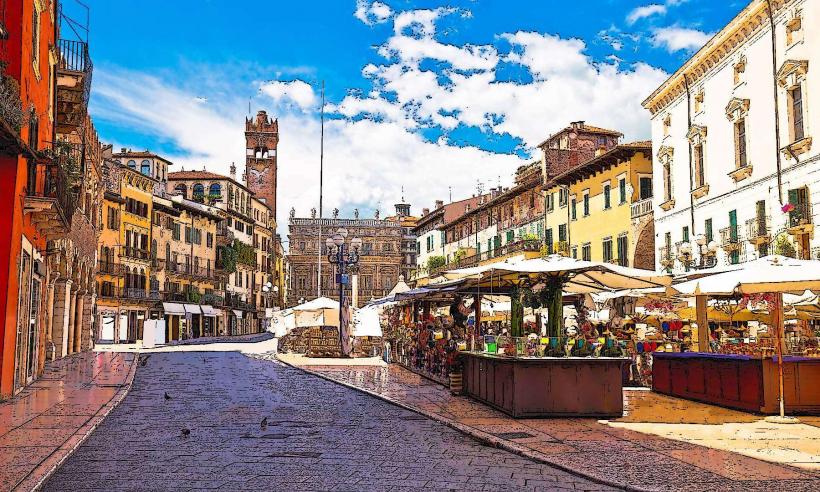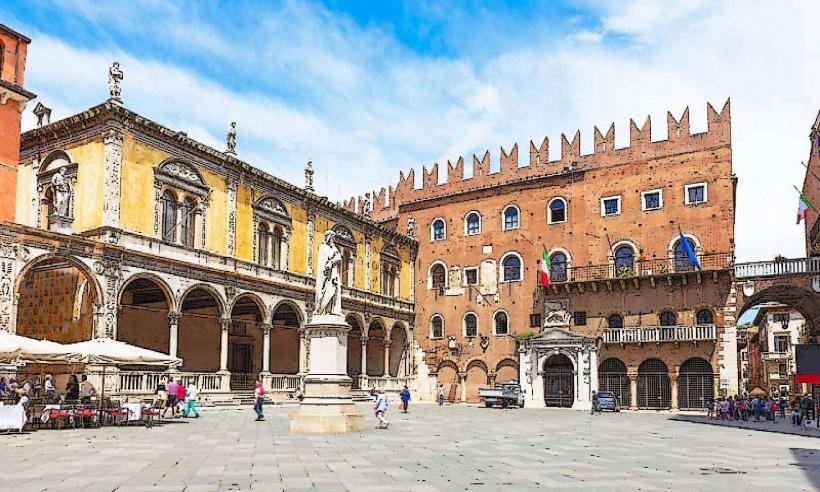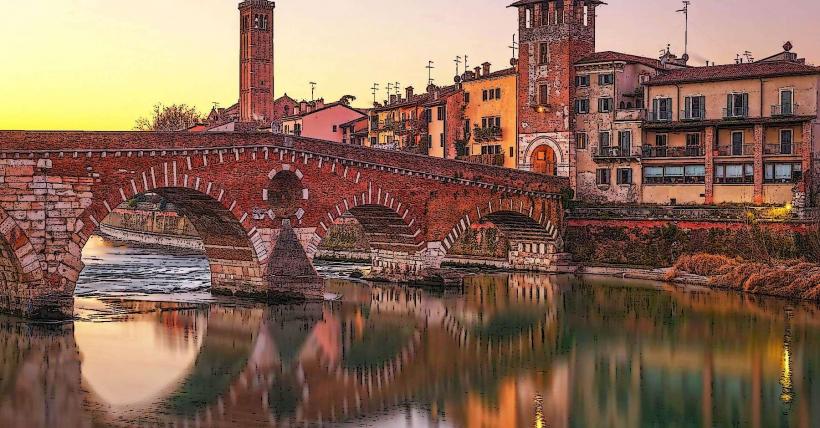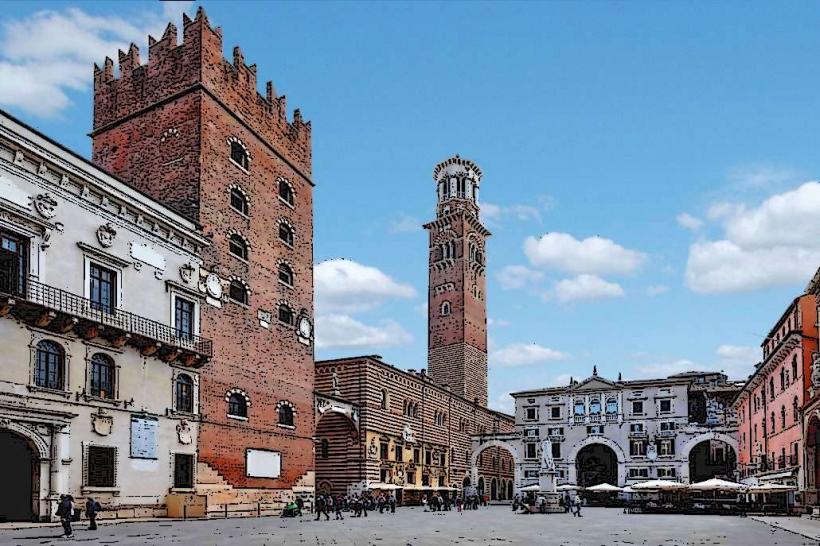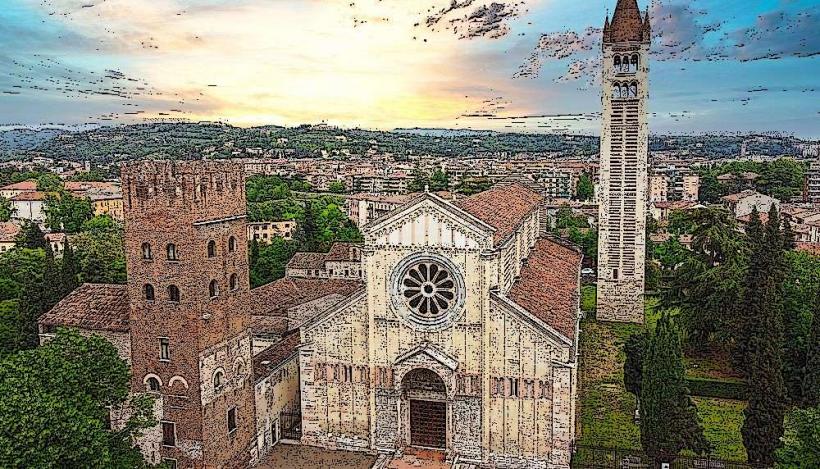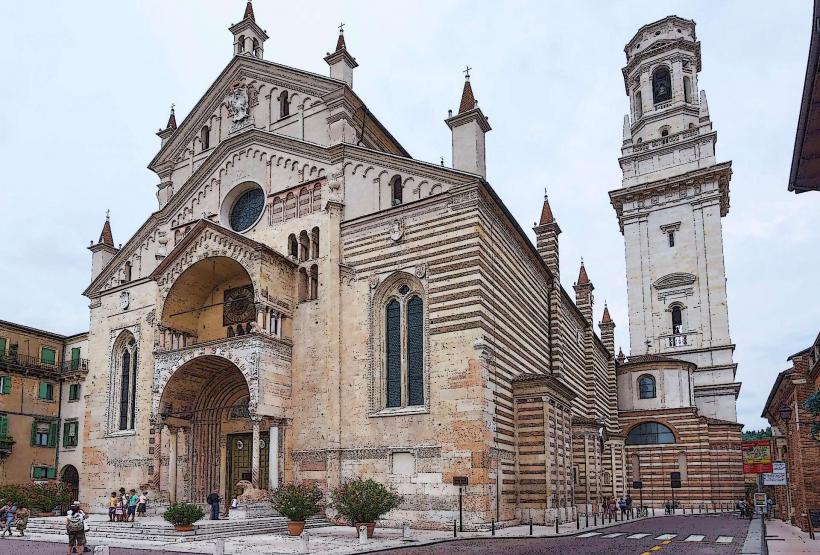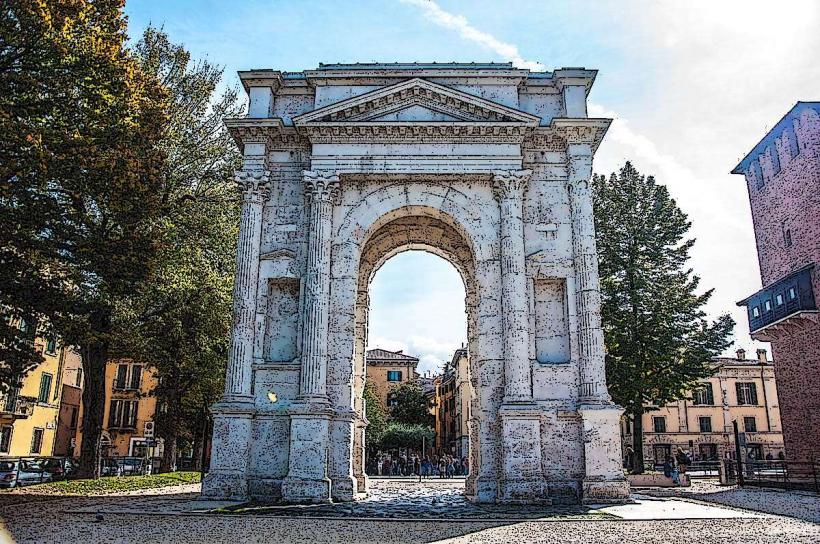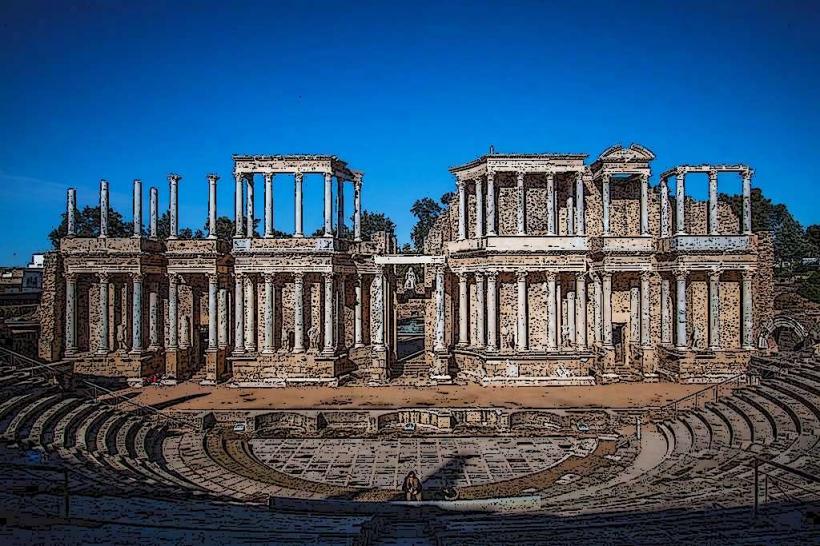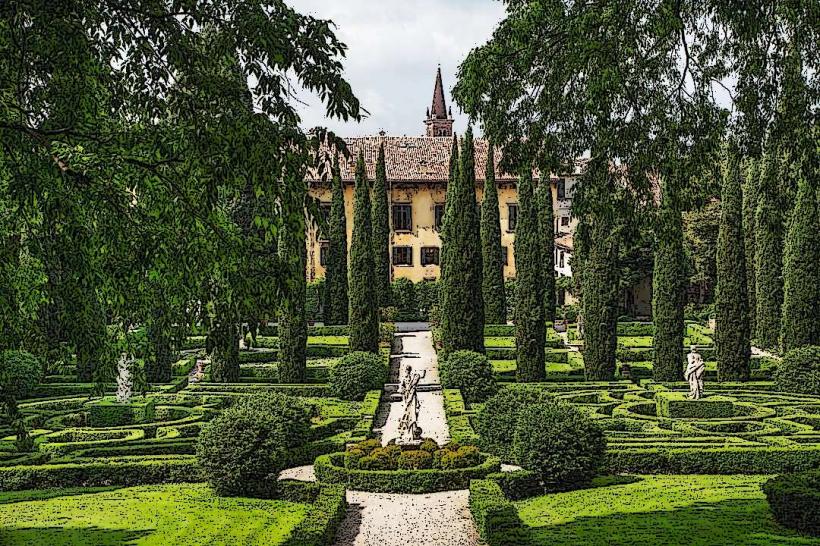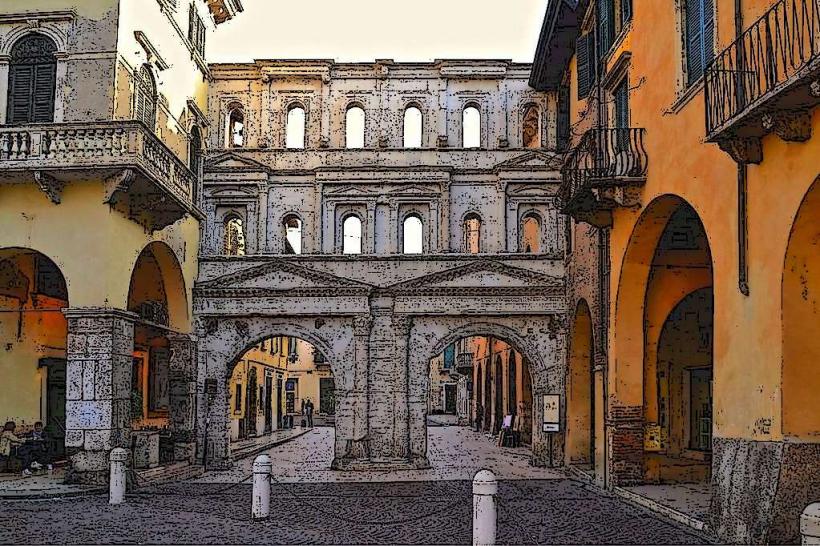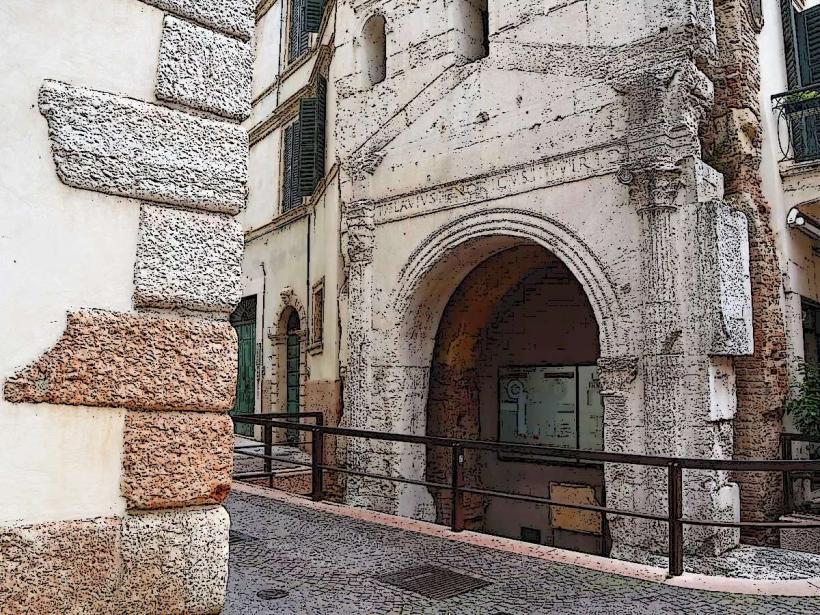Information
Landmark: CastelvecchioCity: Verona
Country: Italy
Continent: Europe
Castelvecchio, Verona, Italy, Europe
Castelvecchio (literally "Old Castle") is a medieval military fortress located on the banks of the Adige River. It is the most significant civil architectural work of the Scaliger (della Scala) dynasty in Verona.
Visual Characteristics
The complex is a formidable example of Gothic military engineering, constructed entirely of red brick and white stone. It features prominent M-shaped Ghibelline merlons (crenellations), seven defensive towers, and a deep dry moat. The structure is integrated with the Castelvecchio Bridge, which extends from the fortress across the river with three massive reinforced arches.
Location & Access Logistics
Address: Corso Castelvecchio, 2, 37121 Verona.
Public Transit: Accessible via bus lines 11, 12, 13, and 91 from Verona Porta Nuova station.
Entry: Walking across the bridge and entering the internal courtyards is free. Access to the Castelvecchio Civic Museum inside requires a ticket (approx. €6).
Logistics: The bridge is pedestrianized. The museum is closed on Mondays.
Historical & Engineering Origin
Commissioned by Cangrande II della Scala in 1354, the castle served both as a defense against external invaders and as a secure escape route for the ruling family toward the north in case of a domestic uprising. After the fall of the Scaligeri, it was used as a barracks and arsenal by the Venetians, the French, and the Austrians. Between 1958 and 1964, the architect Carlo Scarpa renovated the interior, creating a world-renowned example of modern museum design.
Key Highlights & Activities
The Scaliger Bridge (Ponte Scaligero): A fortified bridge once intended only for the military. It remains one of the city's most iconic photographic spots.
Castelvecchio Museum: Houses a vast collection of Romanesque, Gothic, and Renaissance art. Scarpa's layout is famous for how it suspends artworks to optimize light and perspective.
Statue of Cangrande I: The original 14th-century equestrian statue (moved from the Scaliger Tombs) is displayed on an outdoor balcony within the museum.
Defensive Walls: Visitors can walk along parts of the ramparts for views of the river and the city.
Infrastructure & Amenities
The museum includes a bookshop and climate-controlled galleries. 4G/5G signal is strong. No public restrooms are available on the bridge; they are located inside the museum for ticket holders.
Best Time to Visit
Sunset: For optimal lighting on the red brick of the bridge and fortress.
Mid-week: To avoid the high volume of pedestrians on the narrow bridge walkway.
Facts & Legends
A verified fact: During World War II, the retreating German army blew up the Castelvecchio Bridge in 1945. It was meticulously reconstructed between 1949 and 1951 using original bricks recovered from the riverbed. A historical detail: The fortress was the site of the Verona Trial in 1944, where Galeazzo Ciano (Mussolini's son-in-law) was sentenced to death.
Nearby Landmarks
Arco dei Gavi: 0.1km East (Roman triumphal arch).
Arena di Verona: 0.6km Southeast.
San Zeno Basilica: 1.0km West.
Corso Cavour: The historical main road leading directly to the castle.

